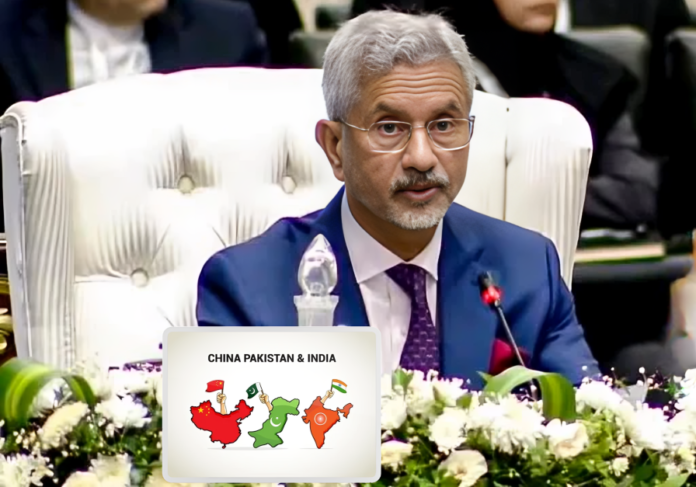At the SCO Summit held in Islamabad, India’s External Affairs Minister, S Jaishankar Pakistan China relations, subtly referencing the complex dynamics between the two nations. His remarks highlighted the critical need for trust and cooperation among neighboring countries.
Jaishankar stated, “If trust is lacking or cooperation inadequate, if friendship has fallen short and good neighborliness is missing somewhere, there are surely reasons to introspect and causes to address.” This statement underscores the vital importance of reaffirming commitment to mutual respect and the principles outlined in the SCO Charter, which could pave the way for fruitful cooperation and integration in the region.
Amidst rising tensions, both with Pakistan and China, S. Jaishankar pointed out that relations are strained due to issues like terrorism from Pakistan and military standoffs with China along the Line of Actual Control (LAC).
He reiterated that dialogue between India and Pakistan hinges on a commitment to an atmosphere “free of terror,” placing the onus on Pakistan to address terrorism effectively. Meanwhile, relations with China have diminished significantly, primarily due to Beijing’s unilateral actions along the LAC over recent years.
In his address to the delegates at the summit, S. Jaishankar emphasized that cooperation must be founded on mutual respect, sovereign equality, and genuine partnerships rather than unilateral agendas. He remarked, “It cannot progress if we cherry-pick global practices, especially of trade and transit.”
The Three Evils: Terrorism, Extremism, Separatism
Highlighting the “three evils” threatening global stability, S. Jaishankar stated, “Our endeavors will progress only when our commitment to the Charter remains firm.” He pointed out that combating terrorism, extremism, and separatism is crucial for fostering trade, energy flows, and connectivity. The Foreign Minister painted a hopeful picture of a collaborative future in the region if these challenges are effectively addressed.
Jaishankar outlined the potential benefits of regional cooperation, stating, “Industrial cooperation can enhance competitiveness and expand labor markets. MSME collaboration has positive implications for employment.” He highlighted that working together could lead to significant advancements in sectors like logistics, energy, and health security.
Globalization in a Multi-Polar World
The Foreign Minister also addressed the global shift toward multi-polarity, stating, “Globalization and rebalancing are realities that cannot be denied.” He emphasized the new opportunities that arise from enhanced trade and investment, urging SCO member states to renew their commitment to achieving the organization’s objectives.
Amid ongoing global conflicts and disruptions, including the Israel-Hamas conflict and the Russia-Ukraine war, S. Jaishankar underscored the need for SCO members to confront these challenges collectively. He encouraged reflection on the organization’s Charter, which emphasizes strengthening mutual trust and cooperation in the face of terrorism, extremism, and separatism.
S. Jaishankar concluded his remarks by congratulating Pakistan on its Presidency of the SCO Council of Heads of Government, expressing India’s support for a successful presidency.


